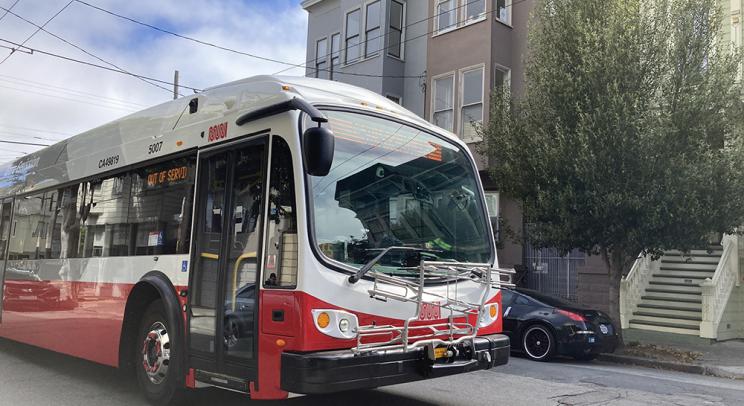
Through its Carbon-Free Future work, BARC and its member agencies provide support to Bay Area cities, counties and community-based organizations to reduce greenhouse gas emissions and limit exposure to harmful air pollutants. BARC supports community-led processes to reduce emissions and pollution exposure while working to advance policies and programs that reduce fossil fuel use and move the Bay Area towards increased use of clean energy. Through this work, BARC is supporting the Bay Area’s role as an international leader in building a carbon-free future.
In addition to efforts to de-carbonize buildings and support partner work to build capacity for community-led emission reductions, BARC is advancing a carbon-free future by helping Bay Area transit agencies convert their bus fleets and maintenance yards to operate Zero Emission Buses.
Shared Work Plan Initiative 3 – Accelerate Deployment of Zero-Emission Transit Buses (ZEB) and Charging Infrastructure
Buses play a critical role in meeting transportation demand, reducing single-passenger trips and climate impacts, especially for people who depend and rely on public transit to get where they need to go, a large proportion being low-income residents. The California Air Resources Board’s Innovative Clean Transit Rule requires 25% of large operators’ bus purchases be zero-emission by 2023, and 100% by 2029. In total, approximately 2,500 new buses will need to be replaced in the Bay Area over the next decade, putting new demands on bus depots and utilities to support the demand. Conversion to electric buses poses both a funding challenge and a potentially significant strain on the existing power grids.
Year One Priorities and Tasks (supported by BARC staff, partners, and consultant), include:
- Facilitate coordination between BAAQMD and MTC on grantmaking to support ZEB charging infrastructure
- Create overview and diagram the key players in this space, along with the challenges and opportunities in both near and long term
- Explore opportunities for shared transit/municipal charging infrastructure
- Explore/analyze near-term and long-term obstacles around charging infrastructure and power grid w/ utilities, cities, counties, and others
Did You Know
The State of California has among the most ambitious long-term climate goals of any large economy in the world. A 2018 Executive Order by Governor Jerry Brown calls for statewide carbon neutrality by 2045. Furthermore, Senate Bill 100 (De León, 2018) mandates that the state rely on zero-emission energy sources for 100 percent of retail electricity sales by 2045.
Highlights
BAAQMD, a BARC member agency, is supporting the incubation of innovative ideas in local communities through its Climate Protection Grant Program.
